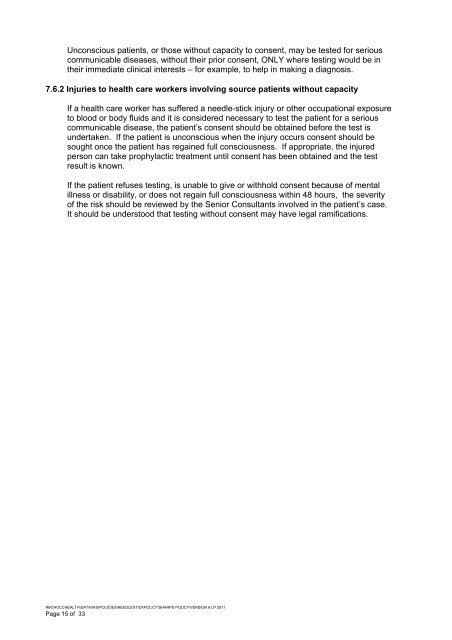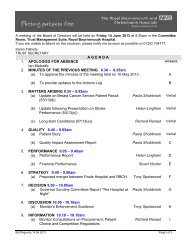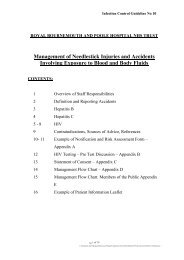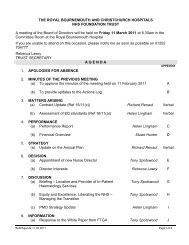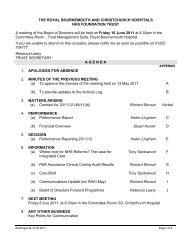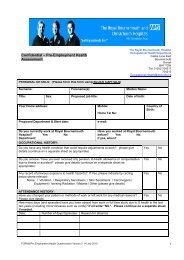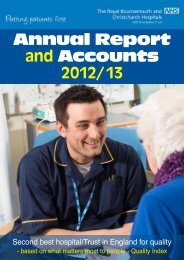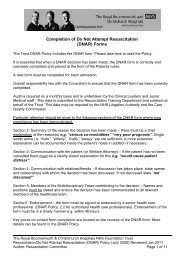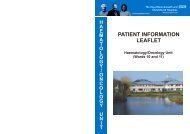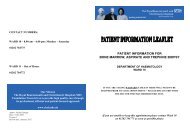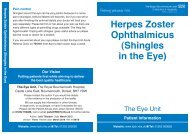Management of Needlestick & Contamination Injuries - Royal ...
Management of Needlestick & Contamination Injuries - Royal ...
Management of Needlestick & Contamination Injuries - Royal ...
- No tags were found...
You also want an ePaper? Increase the reach of your titles
YUMPU automatically turns print PDFs into web optimized ePapers that Google loves.
Unconscious patients, or those without capacity to consent, may be tested for seriouscommunicable diseases, without their prior consent, ONLY where testing would be intheir immediate clinical interests – for example, to help in making a diagnosis.7.6.2 <strong>Injuries</strong> to health care workers involving source patients without capacityIf a health care worker has suffered a needle-stick injury or other occupational exposureto blood or body fluids and it is considered necessary to test the patient for a seriouscommunicable disease, the patient’s consent should be obtained before the test isundertaken. If the patient is unconscious when the injury occurs consent should besought once the patient has regained full consciousness. If appropriate, the injuredperson can take prophylactic treatment until consent has been obtained and the testresult is known.If the patient refuses testing, is unable to give or withhold consent because <strong>of</strong> mentalillness or disability, or does not regain full consciousness within 48 hours, the severity<strong>of</strong> the risk should be reviewed by the Senior Consultants involved in the patient’s case.It should be understood that testing without consent may have legal ramifications.RBCHOCCHEALTH\DATA\WS\POLICIES\NEEDLESTICKPOLICY\SHARPS POLICY\VERSION 6 LP 2011Page 15 <strong>of</strong> 33


